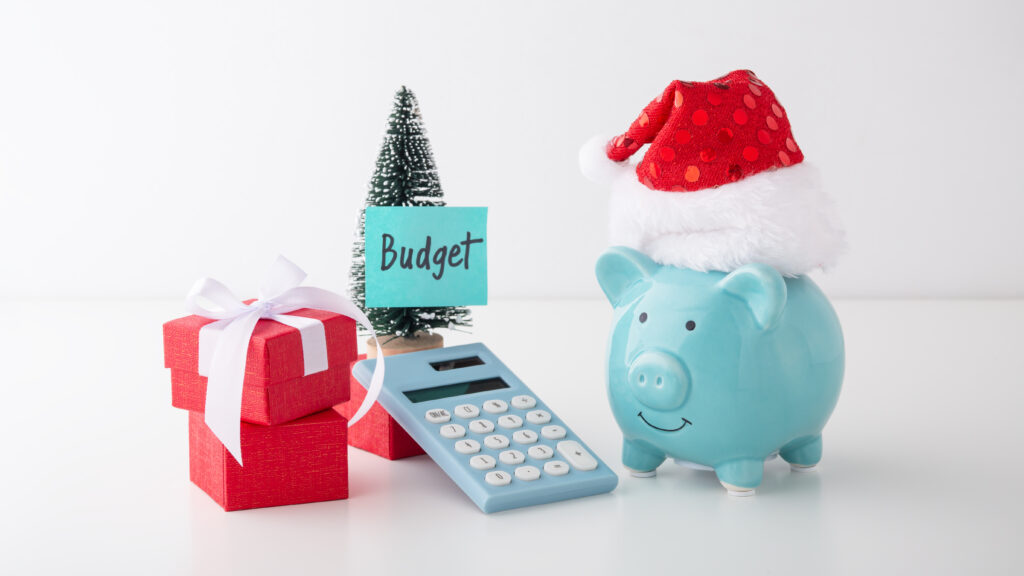What do society, friends and family expect of you at this time of year? Is the pressure on to find gifts that will deliver Christmas joy as an antidote to the long, dark nights? If money is tight this month, a debt-free Christmas might seem fanciful. All too often, January pay packets take the hit and New Year ends up feeling not so happy.
According to the Bank of England, the typical UK household spends an extra £700 in December, compared to other months. Other research by finder.com suggests that Christmas spending in the UK for 2025 will total around £41.6 billion.
Additional spending at this time of year is not necessarily a problem if it’s planned. But not everyone is great at sticking to a budget. It’s estimated that more than a third of us will get into debt, with most of that going on credit cards.
It can be difficult to stay disciplined with special offers, peer pressure and demanding kids. But keep focussed and consider these 3 techniques to avoid counting the cost of Christmas well into the new year.
1. Set a budget and stick to it
Take an hour or so to work out how much money you can afford to spend over the Christmas period. If you want to allocate some of your January income to pay the bills, that’s fair enough. But don’t allow Christmas debts to linger into February and beyond.

Once you have your budget, split it into categories, for example:
- Gifts
- Food and drink
- Activities and travel
Keep a spending log to check how well you’re staying within budget and don’t cave-in to special offers. Danger areas include upgrades to gifts for others and tempting short breaks over the festive period.
It’s worth thinking about the amount of food waste every year at Christmas. Be realistic about what you can reasonably consume and don’t overbuy. You’ll manage fine without that extra lump of cheese or family box of biscuits.
2. Agree expectations
Discuss your spending plans as a family and keep an eye on the bigger picture. The prize is to avoid the stress of additional debts. Think about a confident and positive start to the new year.
Ask yourself “What will that mean for me?” If you control your Christmas spending, will it allow more spending money in January to help get through the worst of winter? Will it mean better holidays or quicker progress towards other financial goals?
Consider scaling back a bit on childrens’ gifts. Some suggestions outline a 3 gift approach:
- “Wants”: Something they want
- “Needs”: Something they need
- “Activity”: Something that can provide a great family experience
3. Be creative and personal
More thoughtful gifts are often appreciated more than expensive purchases. Some great special offers can be found on experiences rather than physical items. Discounts can be found on afternoon teas, hotel stays, spa days, escape rooms and many more ideas from discount sites like Groupon and vouchercodes.co.uk.
In fact, spending money on experiences with others, rather than expensive ‘stuff’ is better for your long-term financial wellbeing and happiness.
How about making cards and gifts that can be personalised for the people you care about? A home-made hamper full of a friend’s favourite items can be really touching and inexpensive.
Enjoy debt-free Christmas shopping
Remember that Christmas Day arrives and disappears in no time. The lingering stress of over-spending can last an awful lot longer than the joy of new stuff or extra food and drink.

If you decide to spend less this year and stick to your plan, you can still have a great Christmas. Focus on the people, the experience and how you spend your time. Switch off the TV and devices and get out for a walk and reflect on what’s important.
Imagine how good it will feel to start the new year without unwelcome credit card bills. It might just be the incentive you need to resist temptation and to enjoy a debt-free Christmas.




 Production
Production